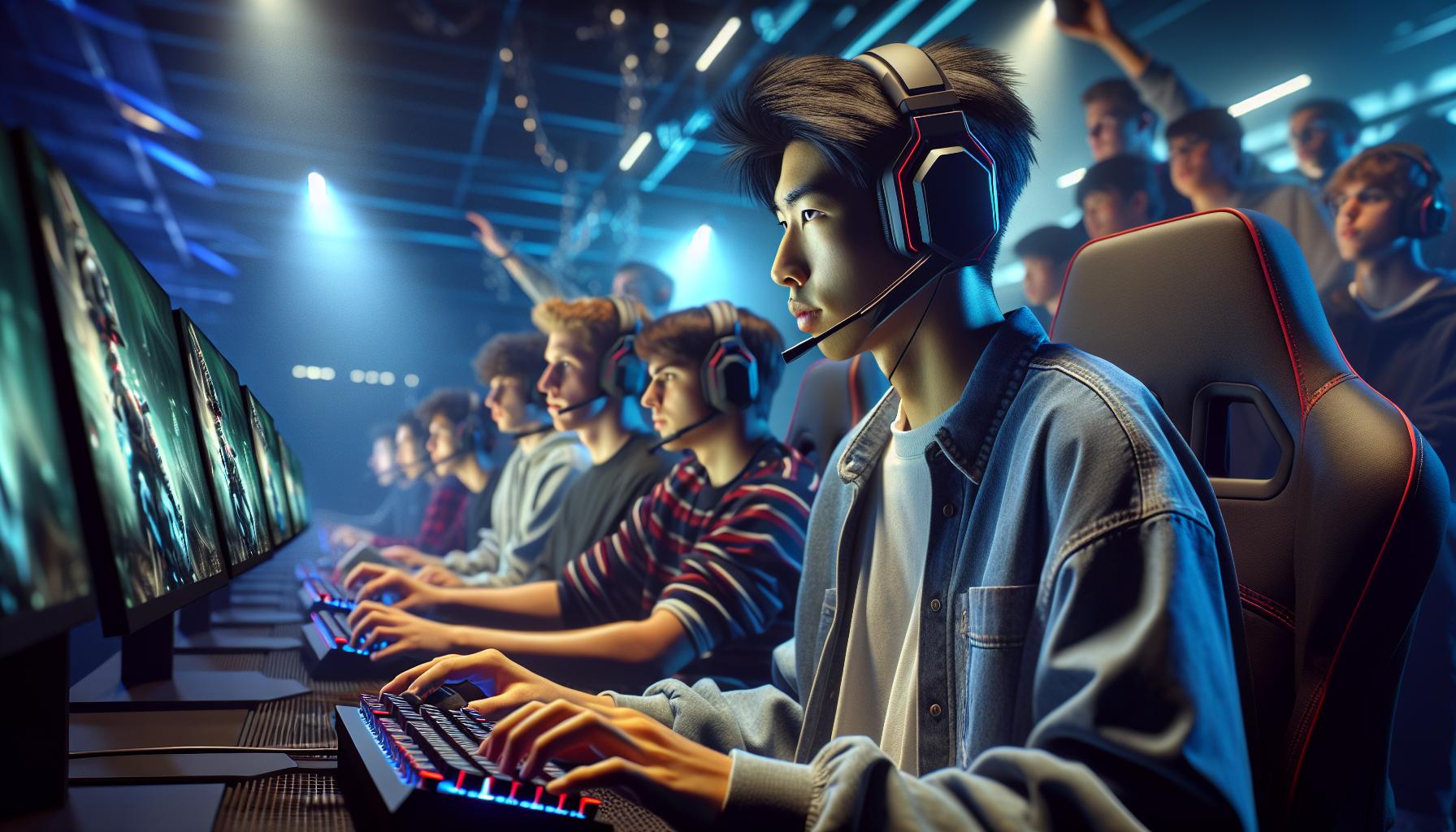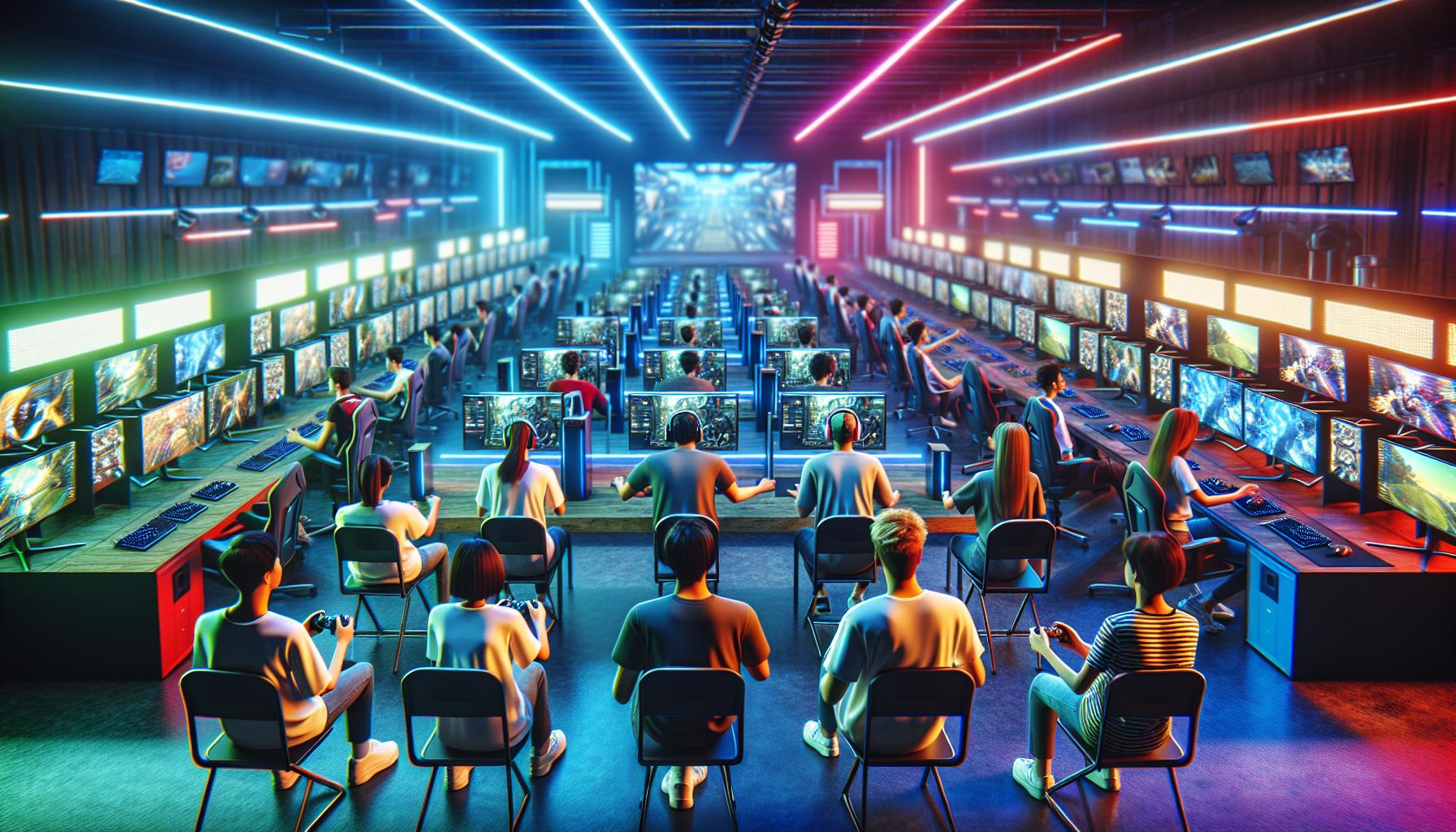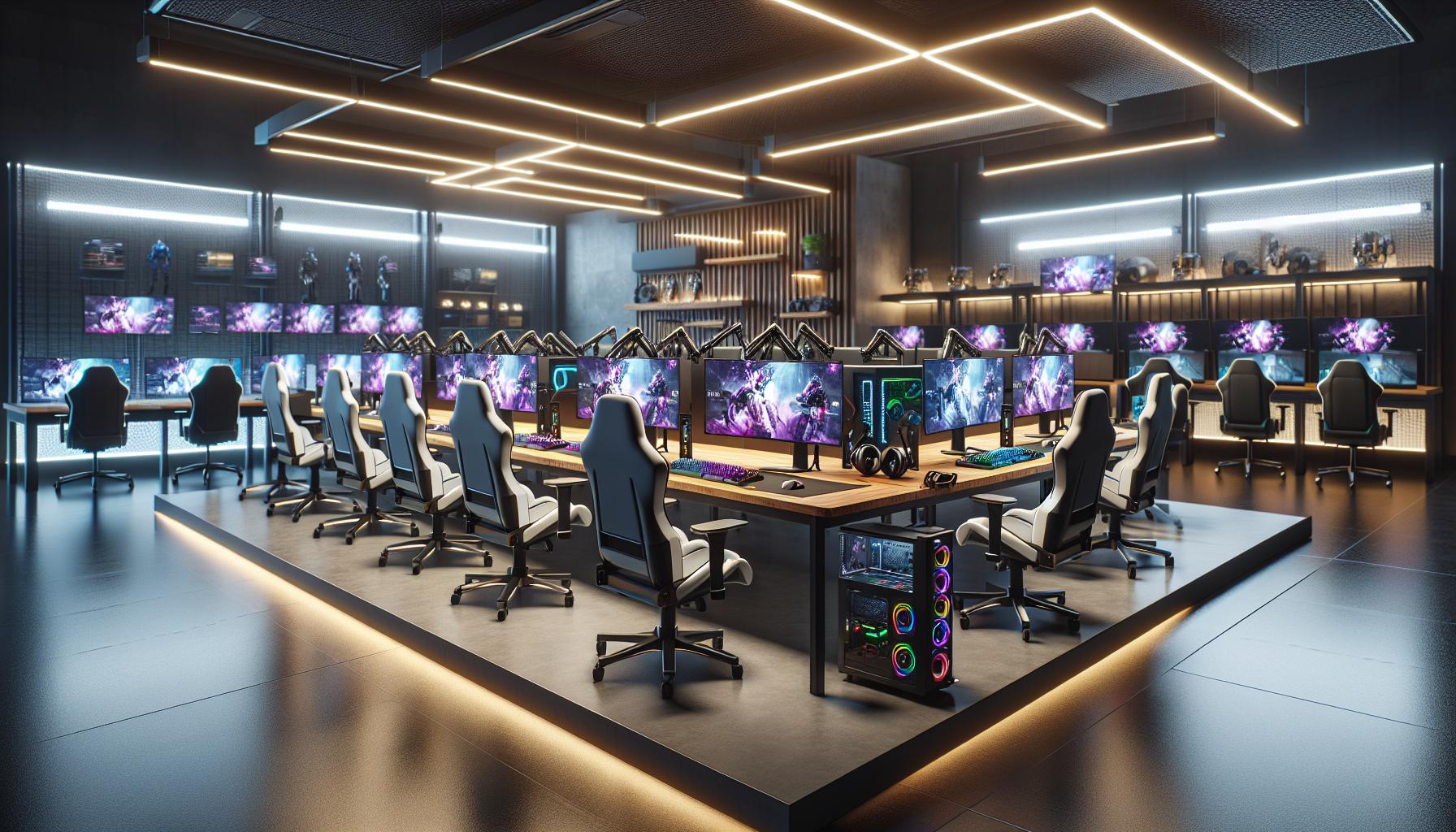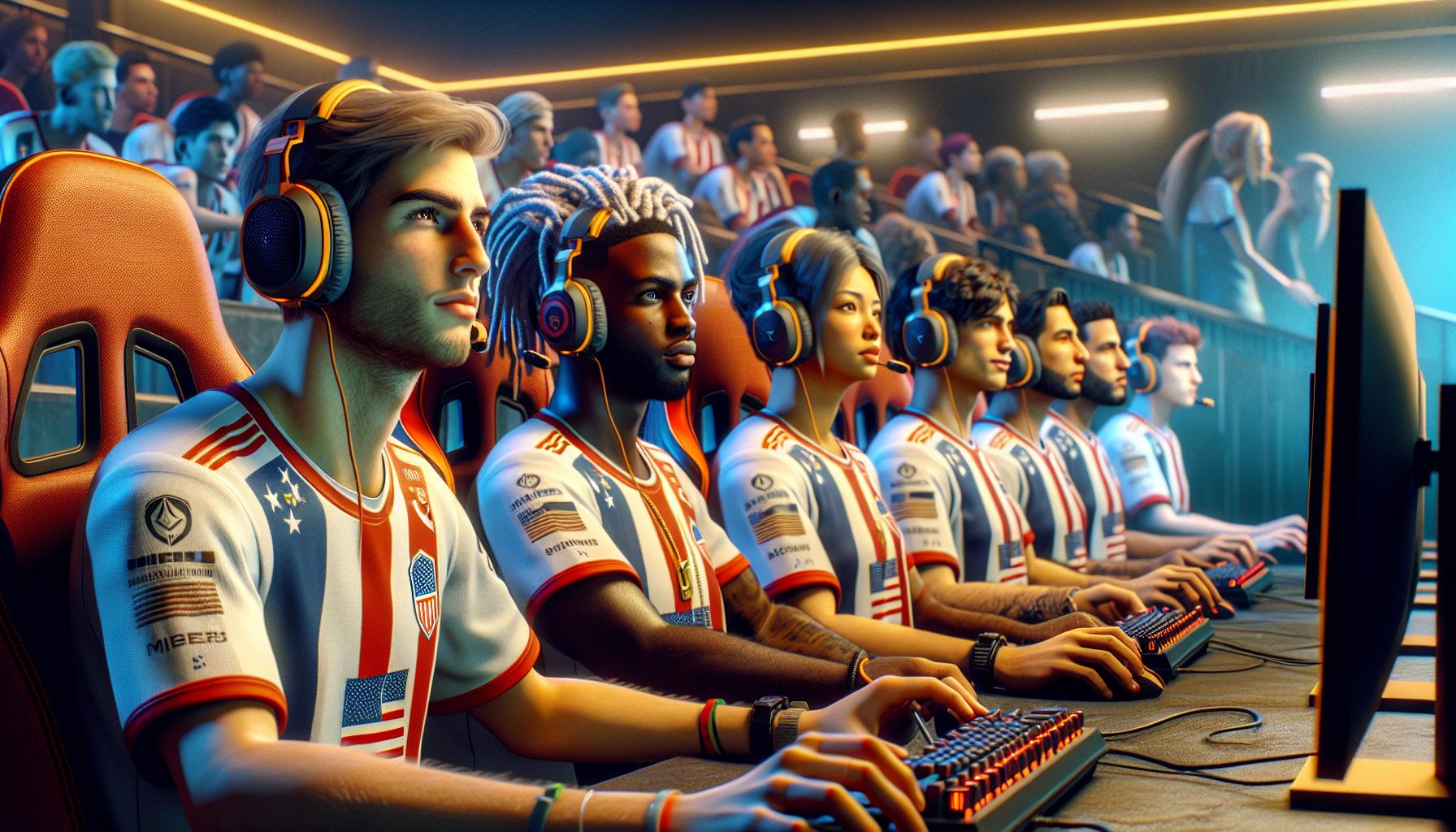Top 125 Colleges with Esports Teams: Complete Guide to Varsity Gaming Programs 2024

As a longtime follower of collegiate esports, I’ve watched this exciting field transform from casual gaming clubs into full-fledged varsity programs. The surge in colleges offering esports scholarships and competitive teams has created incredible opportunities for gamers to turn their passion into a college career.
I’ve seen firsthand how universities across the United States are embracing competitive gaming by building state-of-the-art gaming arenas and developing comprehensive esports programs. From League of Legends to Overwatch, these schools aren’t just offering students a chance to compete – they’re preparing them for careers in the booming gaming industry through specialized coursework and hands-on experience.
Key Takeaways
- Collegiate esports has grown exponentially, expanding from just 7 varsity programs in 2014 to over 175 programs in 2023, with popular games including League of Legends, Overwatch, and Rocket League.
- Leading universities like University of Utah, Michigan State, and Ohio State offer substantial esports scholarships (up to $28,000 annually) and feature state-of-the-art gaming facilities with professional-grade equipment.
- Successful collegiate esports programs require comprehensive support staff, including head coaches, performance analysts, mental health specialists, and technical support teams.
- Elite gaming facilities feature high-performance PCs, 240Hz monitors, professional peripherals, and dedicated practice spaces with broadcasting equipment for match streaming.
- College esports programs create direct career pathways through industry partnerships with companies like Riot Games and Blizzard, offering opportunities in game development, marketing, and esports operations.
- Competitive gaming programs provide both financial benefits (enrollment revenue, sponsorships) and academic advantages (cross-disciplinary learning, technology integration) for universities.
The Rise of Collegiate Esports Programs
The collegiate esports landscape experienced exponential growth since 2014, expanding from 7 varsity programs to over 175 programs in 2023. This surge reflects the increasing recognition of competitive gaming as a legitimate collegiate sport.
Growth and Popularity Trends
Collegiate esports programs demonstrate remarkable expansion rates across U.S. institutions:
| Year | Active Programs | Year-over-Year Growth |
|---|---|---|
| 2014 | 7 | – |
| 2018 | 128 | 340% |
| 2021 | 150 | 17% |
| 2023 | 175+ | 16% |
The most popular collegiate esports titles include:
- League of Legends with 125+ participating schools
- Overwatch with 100+ competitive teams
- Rocket League featuring 90+ collegiate programs
- Valorant establishing 80+ university teams
Key Benefits for Universities
Universities gain significant advantages from establishing esports programs:
Financial Benefits:
- Increased enrollment through specialized gaming scholarships
- Revenue generation from tournament hosting
- Sponsorship opportunities from gaming companies
- Merchandise sales from team-branded products
Academic Advantages:
- Cross-disciplinary learning in game design
- Technology integration in curriculum
- Business management experience through team operations
- Marketing opportunities through live streaming
- Enhanced campus community through gaming events
- Improved student retention rates
- Development of leadership skills
- Career pathways in the gaming industry
Top Universities With Competitive Esports Teams

I’ve identified several leading universities that have established themselves as powerhouses in collegiate esports through substantial investments in facilities, coaching staff, and competitive programs.
Division I Programs
The University of Utah stands out as the first Power Five conference school to launch a varsity esports program, featuring state-of-the-art training facilities and teams competing in League of Legends, Rocket League, and Valorant. Other prominent Division I programs include:
- Michigan State University operates a 16,000-square-foot gaming facility with 40 high-end gaming PCs
- Ohio State University hosts dedicated practice spaces plus a 5,000-square-foot arena for competitions
- University of California Irvine maintains an esports arena with 72 gaming stations and live broadcasting equipment
- University of Missouri fields competitive teams in 5 major esports titles with full-time coaching staff
- Robert Morris University pioneered collegiate esports in 2014 with dedicated gaming spaces and streaming capabilities
Notable Scholarship Opportunities
These universities offer substantial esports scholarships to attract top gaming talent:
| University | Maximum Annual Scholarship | Games Supported |
|---|---|---|
| Maryville University | $28,000 | League of Legends, Overwatch |
| New York Tech | $25,000 | Valorant, Rocket League |
| Miami University (OH) | $24,000 | Multiple titles |
| Full Sail University | $20,000 | Various esports |
| Harrisburg University | Full tuition | All competitive titles |
- Professional coaching staff and structured practice schedules
- Access to premium gaming equipment and facilities
- Performance-based scholarship renewal criteria
- Additional support for content creation and streaming
- Opportunities to compete in major collegiate tournaments
Essential Elements of Collegiate Esports Programs

Successful collegiate esports programs incorporate specific components that create a professional competitive environment. These elements combine state-of-the-art facilities advanced technology dedicated staff to support student-athletes.
Training Facilities and Equipment
Modern collegiate esports facilities feature dedicated practice spaces equipped with professional-grade gaming setups. A standard collegiate esports facility includes:
- Gaming stations with high-performance PCs (Intel i9 processors 32GB RAM)
- 240Hz monitors for competitive gameplay
- Professional-grade peripherals (mechanical keyboards gaming mice headsets)
- Broadcasting equipment for match streaming content creation
- Team meeting rooms for strategy sessions VOD reviews
- Recovery areas with ergonomic furniture sports medicine resources
- Network infrastructure with 1Gbps+ internet speeds redundant connections
Coaching and Support Staff
Elite collegiate esports programs maintain comprehensive staff structures to maximize team performance:
- Head Coach – Oversees program strategy team development
- Assistant Coaches – Specializes in specific game titles techniques
- Team Manager – Handles logistics scheduling administrative tasks
- Performance Analyst – Reviews game data develops strategic insights
- Mental Health Specialist – Provides psychological support stress management
- Athletic Trainer – Focuses on injury prevention physical wellness
- Academic Advisor – Monitors academic progress eligibility requirements
- Technical Support – Maintains equipment resolves hardware software issues
| Position | Players per Staff Member |
|---|---|
| Head Coach | 15-20 |
| Assistant Coach | 8-10 |
| Performance Analyst | 25-30 |
| Mental Health Specialist | 40-45 |
| Athletic Trainer | 30-35 |
Popular Games in College Esports

Collegiate esports programs focus on specific competitive titles that dominate the varsity gaming landscape. These games offer structured competitive formats designed for team-based competition at the collegiate level.
League of Legends
League of Legends stands as the most widely adopted collegiate esports title, with 125 varsity programs competing in official tournaments. The game’s strategic depth encourages team coordination through distinct roles:
- Top Lane: Solo lane fighters focusing on map pressure
- Mid Lane: High-damage mages controlling objectives
- Jungle: Resource gatherers enabling team advantages
- Bottom Lane: Marksman carries dealing sustained damage
- Support: Utility players protecting teammates
The College League of Legends (CLOL) tournament offers $50,000 in scholarship prizes to top-performing teams.
Overwatch
Overwatch maintains a strong collegiate presence with 95 varsity programs participating in official competitions. The game features structured team compositions:
- 2 Tank players controlling space
- 2 Damage dealers securing eliminations
- 2 Support heroes maintaining team sustainability
Competitive stats showcase Overwatch’s collegiate impact:
| Metric | Value |
|---|---|
| Average Team Size | 8 players |
| Annual Scholarships | Up to $20,000 |
| Tournament Prize Pool | $40,000 |
| Active College Teams | 95 |
The Overwatch Collegiate Championship connects top programs through regional divisions leading to national playoffs.
Career Opportunities Through College Esports
College esports programs create direct pathways to careers in the gaming industry through professional connections, practical experience, and specialized skill development.
Industry Connections
Collegiate esports programs establish partnerships with major gaming companies like Riot Games, Blizzard Entertainment, and Epic Games. These connections provide:
- Direct recruitment pipelines for positions in game development, marketing, and esports operations
- Internship opportunities with leading gaming organizations, such as Team SoloMid and Cloud9
- Industry mentorship programs connecting students with gaming professionals
- Exclusive access to beta testing programs and game development insights
- Networking events with industry leaders at major gaming conventions
| Company Partner | Typical Internship Roles | Average Annual Entry Salary |
|---|---|---|
| Riot Games | Game Design, Esports Production | $75,000 |
| Blizzard | Community Management, Event Planning | $65,000 |
| Epic Games | Marketing, Content Creation | $70,000 |
- Broadcasting and content creation through live stream production
- Team management and organizational leadership roles
- Event coordination for tournaments and gaming conventions
- Data analytics for player performance and strategy development
- Brand development and social media management
| Skill Area | Career Positions | Growth Rate (2023) |
|---|---|---|
| Broadcasting | Esports Commentator, Producer | 15% |
| Management | Team Manager, Operations Director | 22% |
| Analytics | Performance Analyst, Data Specialist | 28% |
Conclusion
The rapid rise of collegiate esports has transformed the higher education landscape creating unprecedented opportunities for students passionate about competitive gaming. I’ve witnessed how these programs have evolved from simple gaming clubs into full-fledged varsity sports complete with scholarships professional coaching and state-of-the-art facilities.
Whether you’re aiming for a career in the gaming industry or looking to compete at a collegiate level there’s never been a better time to pursue esports in higher education. With continued investment from universities expanding career opportunities and growing scholarship pools the future of collegiate esports looks incredibly promising.
I’m confident that this dynamic field will continue to expand offering even more opportunities for aspiring gamers and industry professionals in the years to come.



